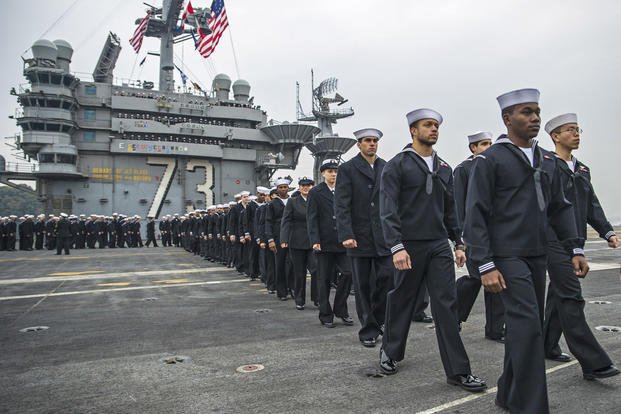Many businesses in the U.S. operate lean and therefore can't craft and implement a dedicated veteran hiring initiative with a full marketing plan and budget. Even without a robust veteran program, companies of all sizes and in all industries can attract, hire and grow veteran talent by following some best practices:
Learn the basics of veteran experience
To attract and engage veterans, your hiring team or office manager should learn about the military experience, particularly the transition to civilian life. For instance:
- The military is unique and specific in culture, full of pageantry, tradition, and protocol. Rules, respect, and roles are important in the military because deviation can be costly (not just in money, but lives).
- Military service members -- both men and women -- sacrifice a great deal to serve their country. They leave their families, friends, and community for long stretches of time, forming new bonds with those they serve alongside. The sacrifices are made in the name of loyalty, honor, and duty, but they are still difficult.
- Not all veterans have the same military experience. One person could work as a cook, another as a mechanic, another as a fighter pilot. They are all part of a well-orchestrated team to complete a mission, but the jobs are different.
- Not all veterans see combat. Many service members serve stateside, or in countries without an active conflict. Others serve in the Guard and Reserves, and are prepared for combat but may never deploy.
Recognize a military resume
The military has over 7,000 Military Occupational Specialties (MOS) to label and describe roles and duties performed in service. Some of these jobs translate to civilian career nicely, such as mechanic or logistician. Others are unique to the military or use technology or systems not found in the business world. For these reasons, training your hiring teams on reading a military resume, and deciphering value and transferrable skills, is helpful.
Know what to ask/not ask
Civilians sometimes ask veterans questions which seem innocent, but can be insensitive or even inappropriate. Your hiring teams should be well versed in the laws around interviewing and can become aware of questions to avoid -- such as "what's it like to shoot a gun at someone?" or "did you lose any close friends in combat?" -- and focus on questions that will draw out better responses from job candidates.
Good questions to ask include: "How did your work in the military prepare you for a career in XYZ industry?" or "what is the biggest surprise you've found in transitioning to a civilian career?" or "describe the people you managed during your military service."
Be transparent about your knowledge and goals
The quickest way to build trust and relationship with veteran job candidates is to be candid about your level of knowledge and understanding of their experience. If you have any personal connection to the military (maybe your grandfather served), share that. Don't overstate your knowledge of the veterans' experience because of your connection, but emphasize that you have some knowledge of service.
Similarly, if your company desires to hire veterans but doesn't have a wide net to cast and is limited in exposure, reach, and resources, then state that. Veterans can be told the truth, and would rather you be direct and candid than overstate your goals and disappoint them.
Engage veterans you know
Is someone on your team a military spouse? Do you have veterans currently working for or with you? They will be great resources to help you source, hire, and on board new veteran employees. Leverage their knowledge, insight, and connections, but remember that their experience was their own, not every veterans'. Be careful projecting that one veteran's biases, hopes, and fears onto every veteran candidate you meet.
Hiring military veterans can be a huge endeavor requiring new knowledge, technology, marketing, and talent development processes. Even without a large hiring goal or budget, you can attract military veterans to your company, thus reaping the rewards of this amazing work force!
About Lida Citroën
Lida Citroën, a branding expert based in Denver, has made a career of helping people and companies create new or enhanced identities. She is passionate about helping veterans learn how to compete for careers in the civilian sector. A TEDx Speaker, Lida presents her unique personal branding training programs across the U.S., at military installations and events, serves on the Board of Directors of NAVSO volunteers with ESGR, and has produced numerous programs and materials to help military veterans successfully transition after service. If you have a transition question Lida can help answer, email her at lida@lida360.com. She is also the author of the best selling book, "Your Next Mission: A personal branding guide for the military-to-civilian transition," available at www.YourNextMissionBook.com and on Amazon.





